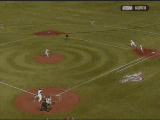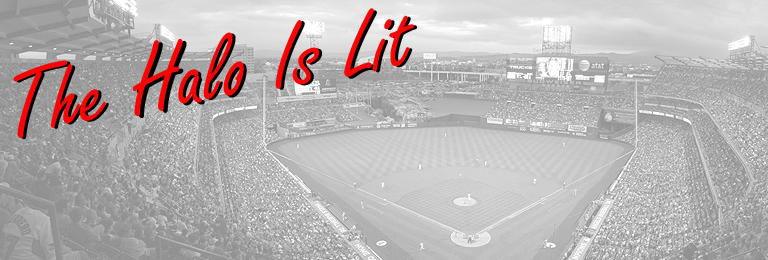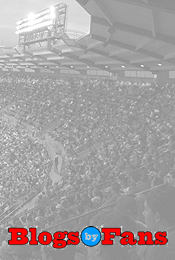A Fanpost by mattwelch over at Halo's Heaven pretty much explodes the common perception about guest post home improvement (common at least among the Angels broadcast team) that Jeff Mathis "calls a great game," or more precisely, a better game than Mike Napoli. Catcher ERA is a favorite target for statheads, and I tend to agree. Good pitchers are good pitchers, and likewise for bad ones. The guy catching the balls behind the plate won't change that. I'll even contend with mattwelch's opinion that "I'd rather see Jeff Mathis catch Ervin Santana." Mathis only caught Ervin five times in 2007, when he was bad, and Napoli only caught him four times in 2008, when he was good. That does not even begin to approach statistical significance.
But instead of ERA, I'd like to talk about base runners. How good (or bad, as the case may be) are these two at preventing runners from advancing? Is Mathis so much better than Napoli that he deserves his reputation as a defensive catcher?
So let's count the number of bases the two Angel catchers give away but give them credit for bases they "save." First, we'll see who has the disadvantage of more base runners in order to "weight" the final result. Fortunately, Baseball Reference keeps track of how many "stolen base opportunities" (SBO) a catcher has had to deal with.
Mathis: (3003 SBO)/(1936.3 IP) = 1.551Mike Napoli's job has been about 1.6% busier per inning than Jeff Mathis's over the years. To make the rest of this easy, BR also has a stat called Runner Bases Added (RBA) which tracks how many runners advance on a catcher via stolen bases, passed balls, or wild pitches. They also track Runner Kills, the total number of runners caught stealing, picked off, or otherwise thrown out trying to advance. We still need to account for errors, which I will assume are worth one base each. Catcher interference is rare, but I'll throw it in just because I can.
Napoli: (4046 SBO)/(2566.3 IP) = 1.577
Mathis: (321 RBA - 67 RK - 24 E - 3 XI)/(1936.3 IP) = 0.117 B/IPBut remember that Mathis's numbers need to be scaled up slightly to account for the fewer base runners he's had to deal with. This puts his B/IP at 0.119 to Napoli's 0.126.
Napoli: (423 RBA - 72 RK - 22 E - 6 XI)/(2566.3 IP) = 0.126 B/IP
In other words, Jeff Mathis saves just seven more bases per 1000 innings than Mike Napoli. For perspective, 1000 innings is nearly a full-season of duty for a starting catcher. That difference is within the margin of error of the crude arithmetic--it is small enough to be of no practical consequence.
But wait! you may be thinking. Perhaps base runners fear Jeff Mathis. Perhaps only the fastest and the most daring base runners challenge his arm, and therefore, the situation disadvantages Mathis from the start. Well, it doesn't look that way. Runners have tried to steal on Mathis 6.36% of the time, as opposed to 6.53% of the time for Napoli. That's not fear. Players run against the best catchers less than 4% of the time. And if you believe in being "clutch," Napoli has actually done better throwing runners out in high-leverage situations than Mathis.
These guys are bad. When I ran Jose Molina, a solid defensive catcher, through the calculation above, I got 0.090. His brother Yadier, probably the best major-league backstop in the game today, scored a 0.046. The current Angels receivers don't live in the same world as these guys.
But Mike Napoli can fucking hit. Even in the midst of a brutal slump (perhaps because he's losing playing time to Mathis?), he's still rocking a .856 OPS, highest of any catcher not named Joe Mauer. His .960 OPS led all major-league catchers in 2008. He's good enough to be an enviable DH, and he probably will be before too long. But the fact that he can put up a .900+ OPS while playing the most difficult defensive position in the game at least tolerably well makes him enormously valuable.
There's no need to compare Napoli's offensive numbers with Mathis, because we all know that Jeff Mathis doesn't really have any offensive numbers. He's a replacement-level hitter on a good day, and since he's already 26, he's not likely to get much better. There's nothing wrong with having a replacement-level hitter for a second catcher if he's also a good catcher. Jeff Mathis is not. He's a hitting catcher who doesn't hit, which is to say, he's worse than useless.
The Texas Rangers have a similar case in Jarrod Saltalamacchia. Like Jeff Mathis, he was once a highly regarded prospect. He was also (at the time) the centerpiece of the Mark Teixeira trade with the Atlanta Braves. This is most likely the reason Ron Washington has stuck with Saltalamacchia to a fault (you can read all about it here). The Rangers expect him to come around, but a hitting catcher who doesn't hit is a liability, and the manager has no excuse when there are better options available. At least Mathis is not the Angels' #1 catcher, but Mike Scioscia's irrational mancrush on him has led me to deeply question his reputation as a "catching guru." The Angels throw out 23% of opposing base runners while getting thrown out 27% of the time themselves. You heard me right, Mike Scioscia is getting beat at his own game.
Jeff Mathis is probably a nice guy and all, but he's bad at baseball. He may have a purpose in life, but it's not as a backup catcher. The team can suffer through the rest of the season with him on the roster and not damage their playoff hopes, but he's arbitration eligible this winter and for God's sake, do not give him any money. I hope the Angels front office can think through their passion and dump him. Mike Napoli is the starting catcher; they need his bat in the lineup more often. Try out Ryan Budde or Bobby Wilson as a backup. They can't hit worse than Mathis, and they can only be better defensively. Or how about getting creative and signing a free agent, like maybe this guy? (Dear Jose: We're sorry we traded you away for a sack of baseballs, and we miss you. Please come back, or at the very least send someone like you. --Love, Mike Scioscia)
 |
| Jeff Mathis nearly throws out Nick Punto attempting to steal center field. |












